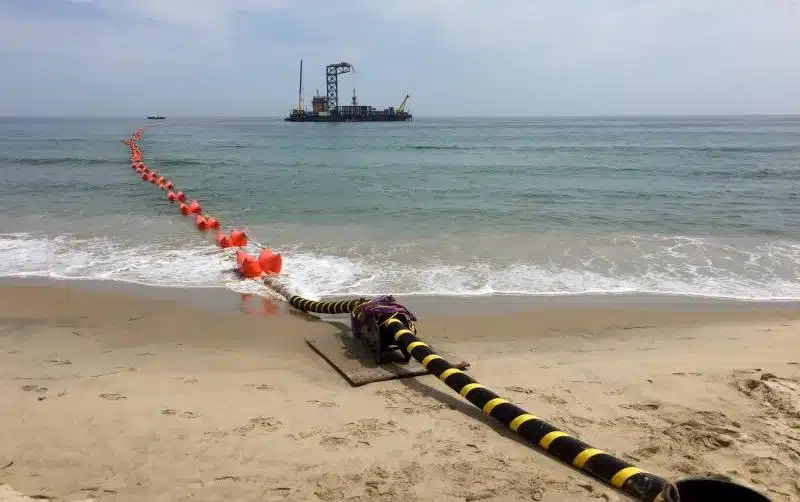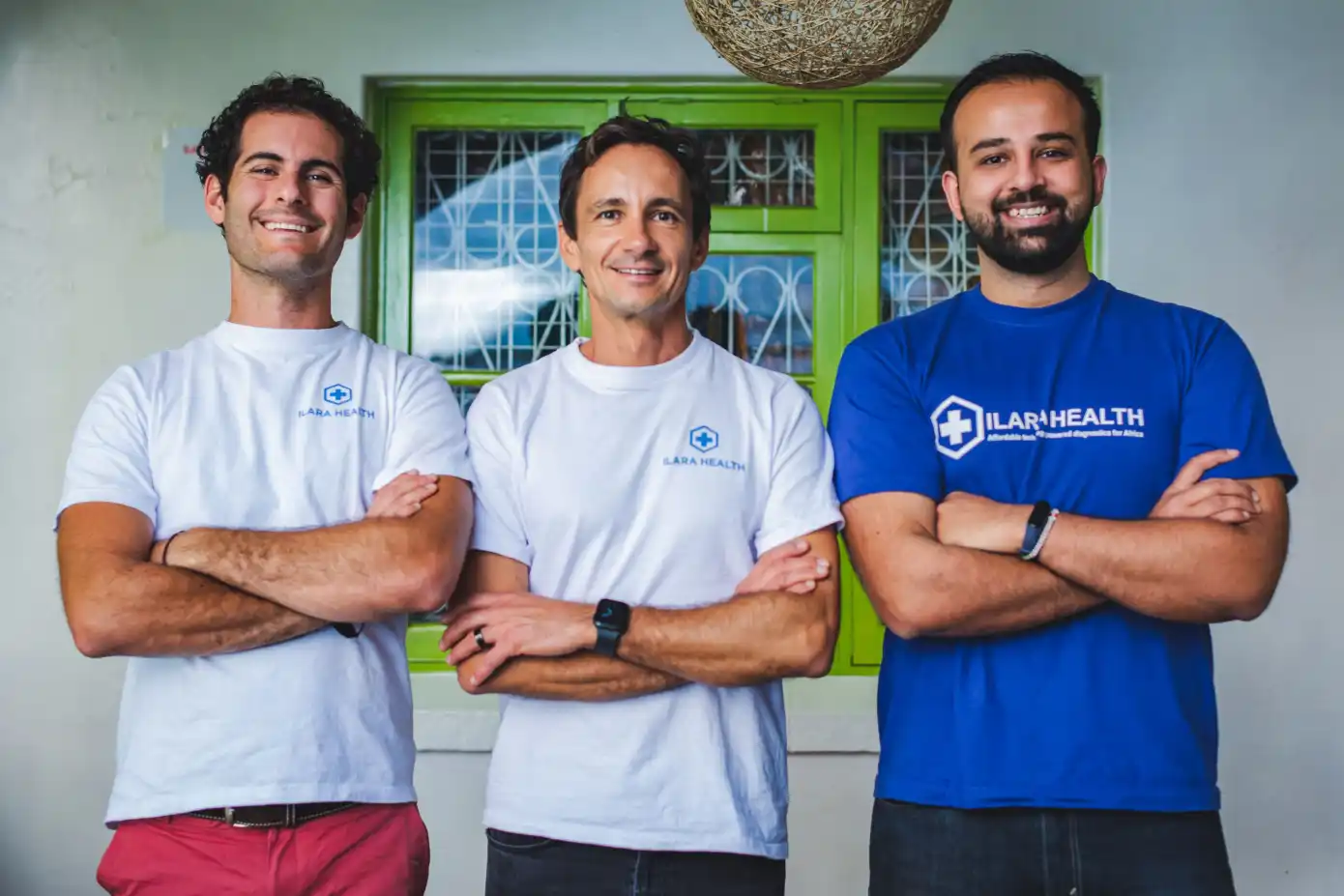Kaixo,
Victoria from Techpoint here,
Here’s what I’ve got for you today:
- Ilara Health slashes headcount amid restructuring
- Seacom unveils 2.0 cable to power Africa’s AI era
- Spotify cracks down on AI music spam
Ilara Health slashes headcount amid restructuring

Ilara Health, the Kenyan healthtech startup known for bringing affordable diagnostics and digital tools to small clinics, is cutting a big chunk of its workforce. The company, per TechTrends Kenya, confirmed the layoffs this week, describing them as part of a major restructuring to keep the business sustainable.
Since launching in 2019, Ilara has grown quickly, working with more than 3,000 partner clinics across Kenya. But in its statement, the company admitted that tough market conditions and delayed funding have forced its hand. The affected staff have already been notified, and a 30-day consultation process has begun, as required by Kenyan law.
“This is a difficult moment for our team,” CEO and founder Emilian Popa said. “We know job losses affect lives in real ways. Our colleagues are the heart of Ilara, and we are committed to supporting them during this period.”
The layoffs come at a time when Ilara has been making steady progress with investors. Just in January 2025, it secured a $1 million loan from the U.S. International Development Finance Corporation (DFC) to strengthen private outpatient clinics. That funding was meant to boost diagnostic devices, health tech, and pharmaceutical access in underserved communities.
It also follows a $4.2 million debt-equity raise in February 2024, which was positioned as fuel for expansion. Now, though, Ilara says it is shifting its focus to its most cash-generating business lines, prioritising profitability over fast growth.
The number of affected employees hasn’t been confirmed, but this marks one of the largest workforce cuts in Kenya’s healthtech scene. It’s also another reminder of the funding crunch hitting startups across Africa, even those with strong networks and a clear social impact.

Victoria Fakiya – Senior Writer
Techpoint Digest
Stop struggling to find your tech career path
Discover in-demand tech skills and build a standout portfolio in this FREE 5-day email course
Seacom unveils 2.0 cable to power Africa’s AI era

Seacom has just unveiled Seacom 2.0, a next-generation submarine cable system it says will completely reshape connectivity across Africa, the Indian Ocean Basin, the Middle East, and Europe. It’s a massive leap from the company’s first cable back in 2009, which slashed internet costs by 300% and ushered in uncapped broadband in South Africa.
The new system promises a jaw-dropping 2,000 terabits per second capacity, built to handle the rise of AI-driven networks. Seacom says by 2030, global networks will be carrying more than 10 billion AI agents, and this cable is designed to be their backbone. Unlike old designs, Seacom 2.0 will use 48 fibre pairs and landing stations that double as AI communication hubs, linking Africa’s sovereign AI infrastructure to global data centres.
It’s also about resilience. After recent undersea cable disruptions exposed Africa’s fragility, Seacom 2.0 will follow diversified routes closer to shore and use open, carrier-neutral landing points. The idea is to cut risks, avoid chokepoints, and give coastal nations more control over global digital flows, turning them from passive landing spots into active gatekeepers of internet traffic.
For landlocked markets like SADC and East Africa, the cable could be a gamechanger. By positioning these regions as hubs for cloud services, apps, and content, Seacom is betting big on Africa not just consuming internet traffic but powering it. CEO Alpheus Mangale says the project’s success depends on collaboration with governments and regulators to co-invest in infrastructure and maximise local impact.
But the timing is telling. Seacom’s parent company, Remgro, just reported a 78% drop in Seacom’s earnings after cable breaks in the Red Sea and along Africa’s east coast in 2024. Repairs took months due to conflict in Yemen, forcing Seacom to reroute traffic through rival cables like Equiano and WACS, driving up costs. Despite the hit, Remgro actually raised Seacom’s book and intrinsic values, a sign it sees Seacom 2.0 as the long-term turnaround bet.
In short, Seacom is using a rough year as fuel for a bold pivot. If 2009’s cable defined Africa’s entry into the broadband age, Seacom 2.0 could define its AI era, provided the politics, partnerships, and funding line up.
Spotify cracks down on AI music spam

AI music is everywhere these days. Tools like Suno and Udio have made it ridiculously easy to pump out songs that sound good enough to pass, and streaming platforms like Spotify are feeling the impact. The flood of AI-generated tracks has sparked big questions about what counts as “real” music, and who deserves the royalties.
Yesterday, Spotify said it’s rolling out new rules to deal with the problem. The company wants to crack down on three big headaches: sloppy, spammy uploads, fake artist impersonations, and the lack of disclosure when AI is used to make a track.
Per TechCrunch, Charlie Hellman, Spotify’s global head of music product, said the aim is to protect “authentic artists” while making sure listeners don’t feel tricked. At the same time, he stressed the platform isn’t against musicians using AI, so long as they’re upfront about it.
To that end, Spotify is teaming up with music standards body DDEX to set a new global metadata standard for AI use. That means artists and labels will soon have to say when AI was used, whether it’s generating vocals, instruments, or even just helping during mixing and mastering. Fifteen labels and distributors have already signed on, though there’s no fixed launch date yet.
The platform is also tightening the rules on impersonation. That includes banning AI voice clones, deepfakes, or anything that copies another artist’s vocals without permission. And over the next few months, Spotify will deploy a spam filter to target shady uploaders who try to game the system with tricks like looping short tracks or re-uploading the same song under different names. Spotify says it deleted 75 million spammy tracks in the past year alone.
Finally, the company addressed a growing rumour: that Spotify secretly adds AI songs to its playlists to cut costs. Not true, said Sam Duboff, Spotify’s head of marketing and policy. “100% of the music on Spotify is created, owned, uploaded by licensed third parties,” he said. “We don’t make any music, AI or otherwise.”
In case you missed it
- Clarrio’s AI platform turns wearable health data into life-saving insights
What I’m watching
- You don’t need a 10-year plan. You need to experiment. | Anne-Laure Le Cunff
- No. 1 Communication Expert: This Speaking Mistake Makes People Dislike You! Vinh Giang
Opportunities
- Kuda Business and Techpoint Africa invite you to an exclusive webinar: Managing Payment Operations at Scale with APIs on October 2, 2025 at 12p.m. WAT. Register here to attend.
- Food Court is looking for a Marketing Coordinator. Apply here.
- FairMoney is recruiting Head of Business Banking Product. Apply here.
- Max.ng is looking for a Platform Support Intern. Apply here.
- Businessfront, the parent company of Techpoint Africa, is hiring a Sales Associate. Apply here.
- Businessfront, the parent company of Techpoint Africa, is looking for a Managing Editor (FMCG). Apply here.
- Flutterwave is hiring for several roles. Apply here.
- Paystack is recruiting a performance marketing specialist in Nigeria. Apply here.
- Paga is recruiting for several positions. Apply here.
- Moniepoint is hiring for several positions. Apply here.
- Are you building a startup can feel isolating, but with Equity Merchants CommunityConnect, you can network with fellow founders, experts, and investors, gaining valuable insights and exclusive resources to help you grow your business. Click here to join.
- Help us make Techpoint better for you! Your feedback shapes what comes next (your responses may potentially save my job. A bit dramatic, but still). It will only take 30 seconds to tell us what works and what doesn’t. Fill it here.
- To pitch your startup or product to a live audience, check out this link.
- Have any fresh products you’d like us to start selling? Check out this link here.
- Follow Techpoint Africa’s WhatsApp channel to stay on top of the latest trends and news in the African tech space here.
Have a fun weekend!
Victoria Fakiya for Techpoint Africa










